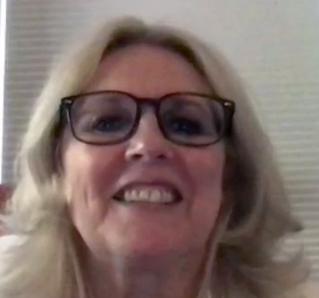
ACSH advisor Dr. Katherine Seley-Radtke, a professor at the University of Maryland, Baltimore County, an expert in antiviral drug development, was featured today in an article in the Baltimore Sun. "UMBC medicinal chemist working on antiviral drugs, a possible alternative to vaccines, for the coronavirus" describes Dr. Radtke's novel and exciting approach to bringing down SARS-2-CoV, the virus that causes COVID-19. It's a must-read.
Reporter Haley Miller tells us how Seley-Radtke applied for an NIH grant in 2016 to study whether certain drugs might be effective against coronaviruses only to have the agency reject the application because 'such viruses as a minimal threat to the United States."
Let's put that one right up there with the Red Sox sale of Babe Ruth to the Yankees in 1920 for $125,000. Of course, because of the virus, neither the Red Sox nor the Yankees are playing baseball, but Seley-Radtke's work may enable the major league, as well as all other sports, to "wait till next year."
After the grant was denied Seley-Radtke put aside her research and began to work on other viruses, such as Ebola and Zika. Miller writes, " But when COVID-19 swept into the United States in March and escalated into a deadly pandemic, her phone started ringing with demand for the same ideas dismissed just four years ago."
(See Prof. Seley-Radtke's and my opinion piece in the Baltimore Sun about why antiviral drugs may play an important role in controlling COVID-19).
More than two decades ago Seley-Radtke developed potential antiviral drug belonging to a new class called "fleximers." As the name implies, they are more flexible than standard antivirals.
“The virus develops resistance to the drug over time, so you take a drug over and over until the virus figures out you’re trying to kill it, and changes its binding site so it is no longer recognized... “Our compounds — we call them molecular chameleons — ours adapt to different environments whereas more rigid drugs can’t.”
Prof. Ketherine Seley-Radtke, July 16, 2020
Why a drug instead of a vaccine? Prof. Seley-Radtke says, "We’ve never been successful in developing vaccines for numerous viruses. Many of us in the antiviral field feel strongly that vaccines won’t be the answer."
Indeed, this may be true. Despite enormous effort, no vaccines exist for HIV/AIDS, hepatitis C, or herpes simplex, but all three can be successfully treated with drugs.
Once the coronavirus began to reshape the world the grant money came flowing in. Seley-Radtke was able to pay three full-time student lab workers and collaborate with Cornell University to determine the toxicity of the drug in mice.
Seley-Radtke is now working with Emergent Ventures, a venture capital firm run out of George Mason University’s Mercatus Center. She was selected "because of antivirals’ potential to lower the death toll and associated health care costs from COVID-19." She is also collaborating with Healion Bio, a Maryland biotech, which is developing a new class of antiviral compounds called Healions.
I'm not sure what she does in her spare time.
(Tomorrow: An interview with the professor about fleximers. The science is fascinating.)



